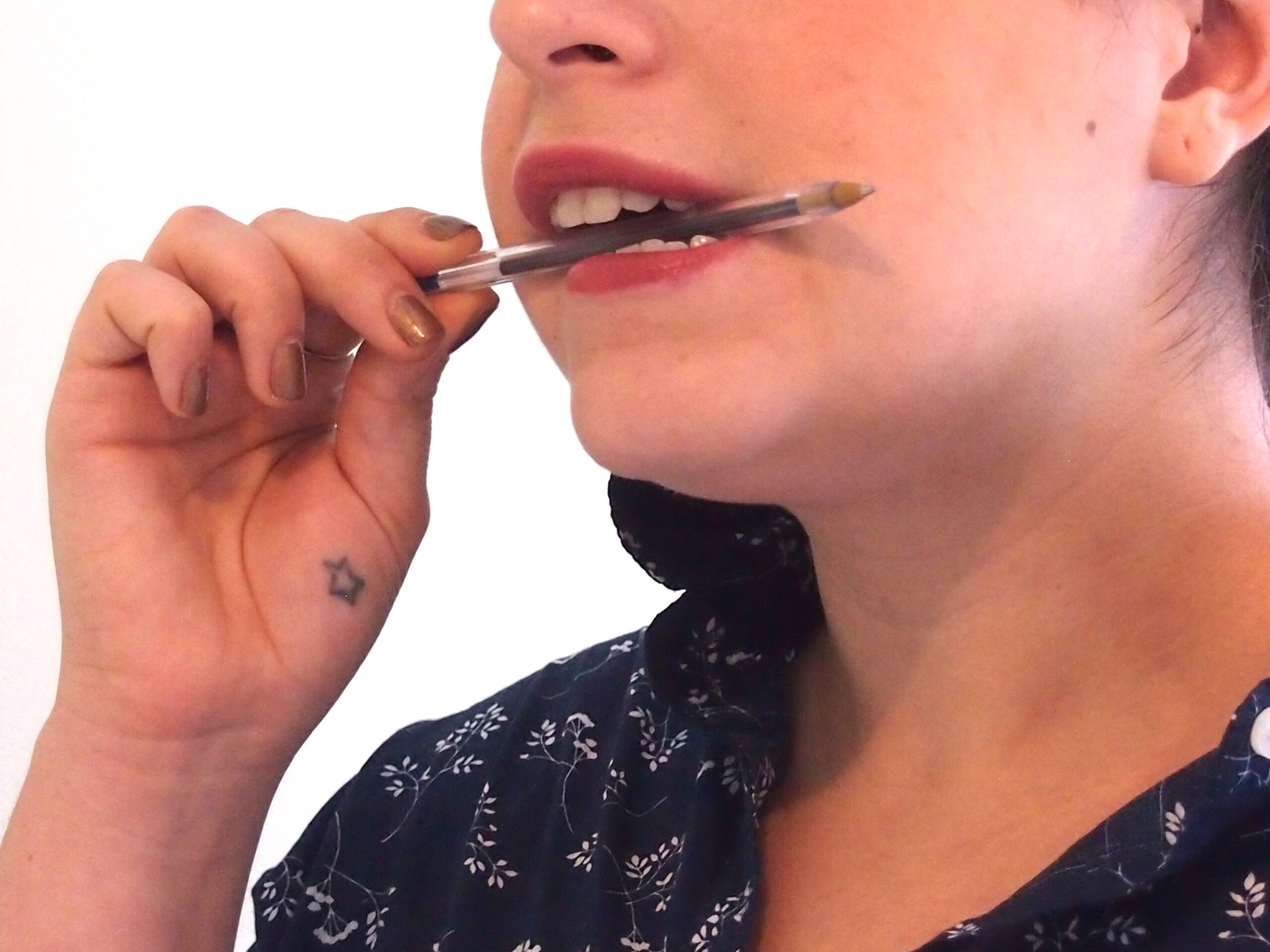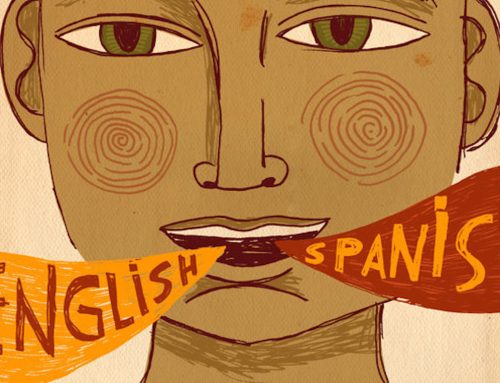Games to learn English pronunciation using common household objects
English pronunciation can be difficult for English learners. With a few easily available household objects, however, you can quickly improve your pronunciation. There’s also a fun game you can buy to challenge yourself and native speakers with their pronunciation.
The three objects you’ll need to get started are a pencil, a spoon, and a mirror.
Pronunciation of the “-er” (ɚ) sound using a pencil
The “-er” sound is used in words like faster, slower, larger, and smaller. All these words are used to compare one thing to another. If you’re not a native English speaker, you will need to train your tongue to make the appropriate sound. I think the best way to do that is by sticking a pencil in your mouth. Be careful to put it in your mouth sideways and not lengthwise!
To practice using the tongue correctly, bite down on a pencil, with the pencil sticking out of both sides of your mouth. Attempt to say the above words without your tongue touching the pencil. Your tongue should be down, under, or around the pencil, but it shouldn’t touch the pencil.
Pronunciation of the “th” sounds using a spoon
“th” sounds are difficult for English learners to make because they require sticking your tongue out of your mouth while speaking. In some cultures this would be considered impolite or rude. In English, however, you have to put your tongue between your teeth to make the “th” sound.
To add to the difficulty, there are two different sounds made with “th.” You hear (/ð/) in the word “the,” and (/θ/) in the word “thanks.” When you say “the,” your voice box moves. When you say “thanks,” air moves freely through your throat.
To practice making the “th” sound correctly, hold a spoon right in front of your mouth. Then practice saying words like “thanks” or “there” or “this,”. You will stick your tongue out between your teeth far enough so that you can feel the spoon.
Pronunciation of vowels using a mirror
Vowel sounds are difficult for English language learners because there are between 13 and 15 vowel sounds in English. Other languages, such as Spanish and Japanese, have only five vowel sounds.
Two of the hardest challenges for English language learners are pronouncing the “i” (ɪ) and “ee” (iː) vowel sounds. To practice, stand in front of a mirror and try to make the sounds. Make sure your face is relaxed when you say “i” (ɪ), and that your face is tense when you say “ee” (iː)
You can watch videos of others speaking these sounds, paying attention to their face and mouth. I think the best videos to watch are newscasts. The camera is often closely focused on the face of the newscaster. Try to make the same movement with your face when making these sounds.
Game to improve your English pronunciation
One of the funniest games I’ve seen for testing your pronunciation is called Speak Out. You place a mouthpiece in your mouth that restricts the movement of your lips and jaw. Then, you have to read a sentence off a card while the other person tries to guess what you’re saying. Believe me, your speaking and understanding of English will improve after playing this game!
Kerry Washington plays the game on the Ellen show.
Classes to help prepare improve your English pronunciation
Pronunciation is what we specialize in at Packard Communications. For help with your communication and pronunciation skills, check out Packard Communications’ services page for an initial assessment, small classes, individual training, or online training! Either way, we can help you with your English pronunciation so that you are confident speaking personally and professionally.






